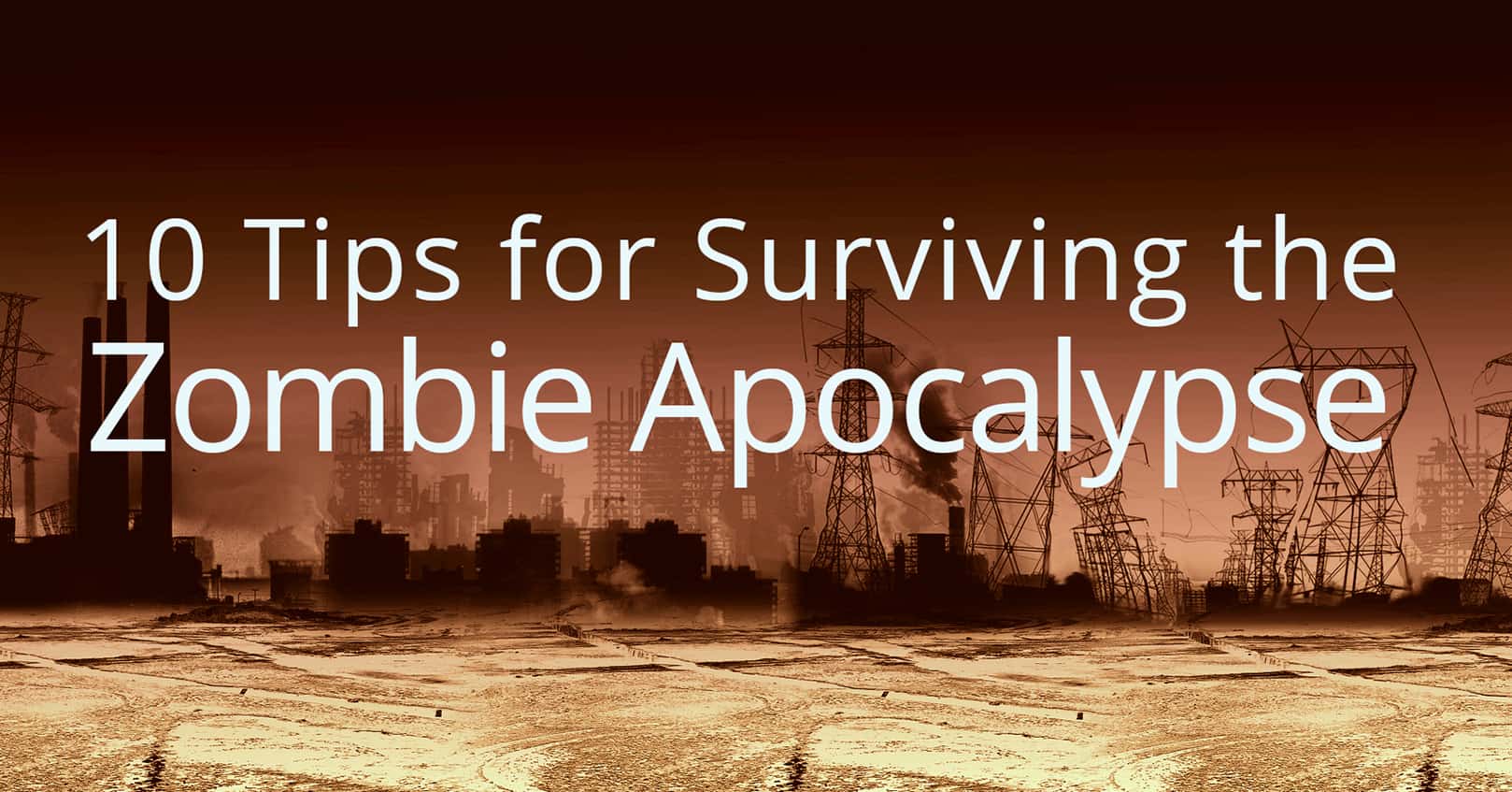Surviving the Zombie Apocalypse
Essentials for Survival
Staying alive during a zombie invasion requires careful planning and preparation. Some essential items and strategies include durable protective clothing, secure shelter, ranged weapons, and careful management of resources and people. Leather motorcycle gear or other bite-proof clothing will protect you from bites while allowing mobility. Sleeping in secure locations like rooftops keeps zombies at a distance. Maintain escape routes to avoid getting trapped. Keep essential supplies like food, water, and weapons packed and ready to grab in an emergency. Ranged weapons like poles with knives or spears allow attacking zombies from a distance of safety. While guns draw more zombies, bows are only useful against other survivors. Most importantly, do not engage zombies unless necessary - survival is the goal, not vanquishing the undead.

Finding Shelter and Transportation
After safely evacuating an initial location, the next priorities are securing shelter and reliable transportation. Abandoned structures can work if made zombie-proof, like removing interior stairs. Look for vehicles that can bypass zombies through speed or barriers. Cars allow mobile shelter but risk damage. Boats provide even better protection as zombies cannot swim or board easily. The ideal may be commandeering a large yacht that can be anchored offshore, using tender boats for supervised trips to shore. Daily headcounts also allow early detection of turns.
Group Dynamics and Management
Cooperating and coexisting with other survivors exponentially improves long-term viability. Share supplies and information freely to build trust and combined strength against threats. Monitor group well-being and set clear rules to maintain safety and morale. Designate shifts so people can still relax and retain humanity despite circumstances. Not all encounters will be hostile - most groups will just want to be left in peace. Have discipline for key roles like security but also flexibility, as even the strongest can have an off-day. Enforce precautions against accidental infection, like evening lockdowns and tethering sleepers.
Cleansing Areas and Gathering Resources
To better establish long-term survival networks will require expanding beyond the initial safe zones. Scout less populated routes to surrounding towns and systematically clear areas of any remaining zombie threats. With protection and caution, scavenging runs can retrieve useful supplies while reducing overall zombie numbers. Look for durable tools, renewable resources, and equipment to improve shelter and defense. Farming abandoned land can cultivate long-term food sources. Salvage materials, tools, and vehicles to continuously enhance security and living standards over time.
Defensive Strategies
Against both the undead and hostile survivors, well-coordinated defenses significantly aid long-term survival. Use natural barriers and choke points to control or limit exposure to threats. Construct secure fences and walls with inspection areas. Integrate planted traps and alarms to alert to breaches while slowing intruders. Station lookouts and use communication systems to coordinate swift response teams. Develop plans for controlled draws to channel large hordes toward elimination zones. Continue bolstering arsenals with diverse weapons and stockpiling ammunition, fuel, and supplies. Constant drill and planning maintains high readiness.
Education and Community
With basic survival stabilized, focus shifts toward long-term rebuilding of civilization. Establish schools and apprenticeships to pass on vital skills to future generations. Develop traditional community roles like teachers, builders, and medical workers. Create productive work like farming, crafts, trade, and industrial projects. Cultivate the arts and entertainment to lift spirits and preserve culture during hard times. Compile knowledge databases through collections of books, skills training programs, and oral histories. Form alliances and trade networks with like-minded survivor groups for mutual aid, resources, and safety in numbers. Over time, cooperation can transform scattered hamlets into thriving post-apocalyptic societies.
Dealing with Other Survivors
While most people will still help each other, some survivors may turn uncooperative or aggressive due to hardship or mental instability. Maintain constant vigilance against potential human threats alongside the undead. Use nonviolent communication to defuse tensions when possible. If confrontation occurs, non-lethal incapacitation should be the goal if feasible. However, tolerate no threats to the community - remove dangerous individuals by any means required for self-defense. Share resources judiciously but do not show weakness which may invite attack. Maintain armed patrols and backup response teams as a deterrent against would-be raiders.
Threats from Wildlife and Environment
Without modern infrastructure and services, natural hazards reemerge as serious dangers. Monitor wildlife activity for aggressive predators drawn to settlements by smells or easy targets. Establish armed guard shifts, animal-proof fences and defenses, especially at night. Consider long-term climate effects from potential absence of industrial pollution controls—for example, how will rising temperatures impact disease vectors? Perform regular equipment, facility and crop checks for deteriorating integrity or signs of degradation, making timely repairs. Develop backups and contingency plans for constant threats like fires, storms or floods. Nature adaptively fills any ecological niches left by humanity’s absence.
Passing on Lessons
Even with the hardest work, complete safety can never be guaranteed. But conveying lessons learned to future generations improves survivor knowledge and chances over time. Record and save information using multiple redundant methods like physical books, electronic archives on durable storage, and oral traditions.
Share emergency plans and continue strategic discussions, incorporating new techniques discovered elsewhere. Regularly assess and update community rules, facilities and operations based on evolving situations. Teach lifestyle and combat skills through realistic training scenarios. Warn of past mistakes to avoid, like relying on single resources, overconfidence or failing to prepare for likely scenarios. With application of tested guidance, more people may endure even the harshest of apocalyptic ordeals.
